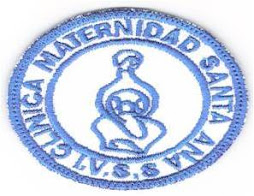
Gardasil Approval Expanded to Prevention of HPV-Related Vulvar, Vaginal Cancer
“There is now strong evidence showing that this vaccine can help prevent vulvar and vaginal cancers due to the same viruses for which it also helps protect against cervical cancer,” Jesse L. Goodman, MD, MPH, director of the FDA’s Center for Biologics Evaluation and Research, said in a news release. “While vulvar and vaginal cancers are rare, the opportunity to help prevent them is potentially an important additional benefit from immunization against HPV.”
In 2006, the original FDA approval for Gardasil was for the prevention of cervical cancer caused by HPV types 16 and 18, which cause 70% of cervical cancers, and which are implicated in unknown percentages of vulvar and vaginal cancers. The original approval, which was for girls and women aged 9 to 26 years, was also for the indications of preventing precancerous genital lesions caused by HPV types 6, 11, 16, and 18 and genital warts caused by HPV types 6 and 11.
In the United States, HPV is the most prevalent sexually transmitted disease, with an annual incidence of 6.2 million new infections, according to the US Centers for Disease Control and Prevention.
Merck & Co Inc, the manufacturer of Gardasil, followed more than 15,000 participants from the original cervical cancer prevention studies for 2 more years to determine the effects of Gardasil on the risk for vulvar and vaginal cancer compared with control participants who had not received Gardasil.
This follow-up showed that Gardasil was highly effective in preventing HPV-related precancerous vulvar and vaginal lesions among women who tested negative for HPV types 16 or 18 at study enrollment. None of the participants in the Gardasil group developed HPV type 16- or 18-related precancerous lesions compared with control group findings of 10 precancerous vulvar lesions and 9 precancerous vaginal lesions related to HPV types 16 or 18.
Women previously infected with HPV types 16 or 18 before immunization had no evidence of benefit. To optimize the preventive effects of Gardasil, the investigators therefore recommend vaccination before potential exposure to HPV types 16 or 18.
Caveats from the FDA represented in the label are that presently available information is insufficient to support use beyond age 26 years, and that Gardasil does not protect against diseases caused by other HPV types. Because Gardasil does not protect against preexisting HPV infections and because no vaccine is 100% effective, all women should continue to be monitored with Pap tests, even after vaccination.
Most adverse events of Gardasil reported since FDA approval in 2006 have not been serious. The most frequently reported adverse events have included syncope, injection site pain, headache, nausea, and fever. Observation is recommended after vaccination in case of syncope or severe allergic reactions.
A short- and long-term safety surveillance study is underway of 44,000 individuals in a managed care organization who received Gardasil for all its approved uses.




1 comentario:
BUENAS TARDES ESTIMADOS DOCTORES; LA MISMA ES PARA INFORMARLE QUE ESTOY VENDIENDO LA VACUNA GARDASIL LOS INTERESADOS DEBEN ENVIAR UN MENSAJE A MI CORREO FREDDYMENDEZ2005@HOTMAIL.COM O GMAIL. COM
DE IGUAL MANERA PUEDEN LLAMARME AL TELEFONO 04126128269; Y TAMBIEN REALIZAMOS EN NUESTRO LABORATORIO LA PRUEBA DE DETECCION Y TIPIFICACIÓN DEL VPH A< UN COSTO DE 90 BS.F CUALQUIER INFORMACIÓN ADICIONAL NO DUDEN EN PREGUNTARME
Publicar un comentario